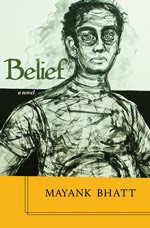 |
| Jawaharlal Nehru and Vallabhbhai Patel |
The present dispensation in India (articulated by the head of the ruling party) has sparked an unseemly debate by making
counterfactual historical claims that India’s first Deputy Prime Minister Sardar
Vallabhbhai Patel would, in fact, have made a better Prime Minister than Jawaharlal
Nehru.
Of course, the real reason for instigating the "debate" is the deep rooted hatred that
the present dispensation harbours against India’s first Prime Minister.
Jawaharlal Nehru doesn’t need to be defended. He
will be always be taller than the tallest statue that may be built for anyone
anywhere in India.
Here’s an extract from B. R. Nanda’s (1917-2010) The Nehrus (originally published in 1962
and then updated in the 1980s), describing Nehru.
Jawaharlal Nehru’s was a rich, varied and
complex personality. Though born with a silver spoon in his mouth, and reared
in the nurseries of the British aristocracy, he was destined to spend the best
part of his life in railway trains, public meetings and prisons. He was no
orator; his speeches were calculated not so much to impress or humour his
admiring audiences, as to instruct and re-educate them. Over his countrymen he
came to exercise a magnetic influence; as he says in his autobiography, he took
to the crowd and the crowd took to him. But he was an intellectual with a deep
strain of loneliness, the compassion for suffering humanity. He could abstract
himself from his immediate surroundings even in the midst of a formal banquet
or a state reception, and was most relaxed in the company of children and
animals. Mountains with their snows and solitude fascinated him. He loved beautiful
things, paintings, sculptures and books. In prison he had time to reflect on
the five thousand years of India’s past, and to connect it with her present and
future. As the American journalist Norman Cousins, put it, Nehru’s intellect
was rooted in the Enlightenment but his spirit was in the Vedas. He was a
writer of distinction. All his major works, the Glimpses of World History, An
Autobiography and The Discovery of India were written in prison when he was
still engaged in the battle for freedom. They all have autobiographical
flavour, and bear the mark of a passionate, albeit humane, nationalism.
Drawing upon nineteenth century British
liberalism, Fabian socialism, Marxist dialectics, Soviet economics and Gandhian
ethics, Nehru’s political philosophy was eclectic. Not the least important ingredient
in this philosophy was Jawaharlal’s own perception of India and the world….
Nehru had too great a sense of history to
imagine that he could find final solutions for the numerous and complex
problems which beset India and the world. He himself claimed neither
omniscience nor infallibility. “All of us,” he once said, “are liable to err,
and I rebel against the notion, that an organization, an idea or a country can
be infallible.”
Nehru spoke in an idiom which had a worldwide
appeal. Several of the young radicals of Asia and Africa who were destined to
lead anti-colonial revolutions in their countries, were fascinated and inspired
by Nehru’s writings. Indeed, his role in the fight against imperialism in India
and abroad was so important, that if he had died in the summer of 1947 and
never taken office, he would still have occupied a high place in history. As it
was, he became the chief architect of post-independent India, and led her in
the difficult years of transition from colonialism to democracy, from
traditionalism to modernity and from stagnant to a developing economy. In a
period of deep cynicism and doubt, Nehru was an incorrigible idealist, but his idealism
was, as he once put it, “the realm of tomorrow.”




No comments:
Post a Comment